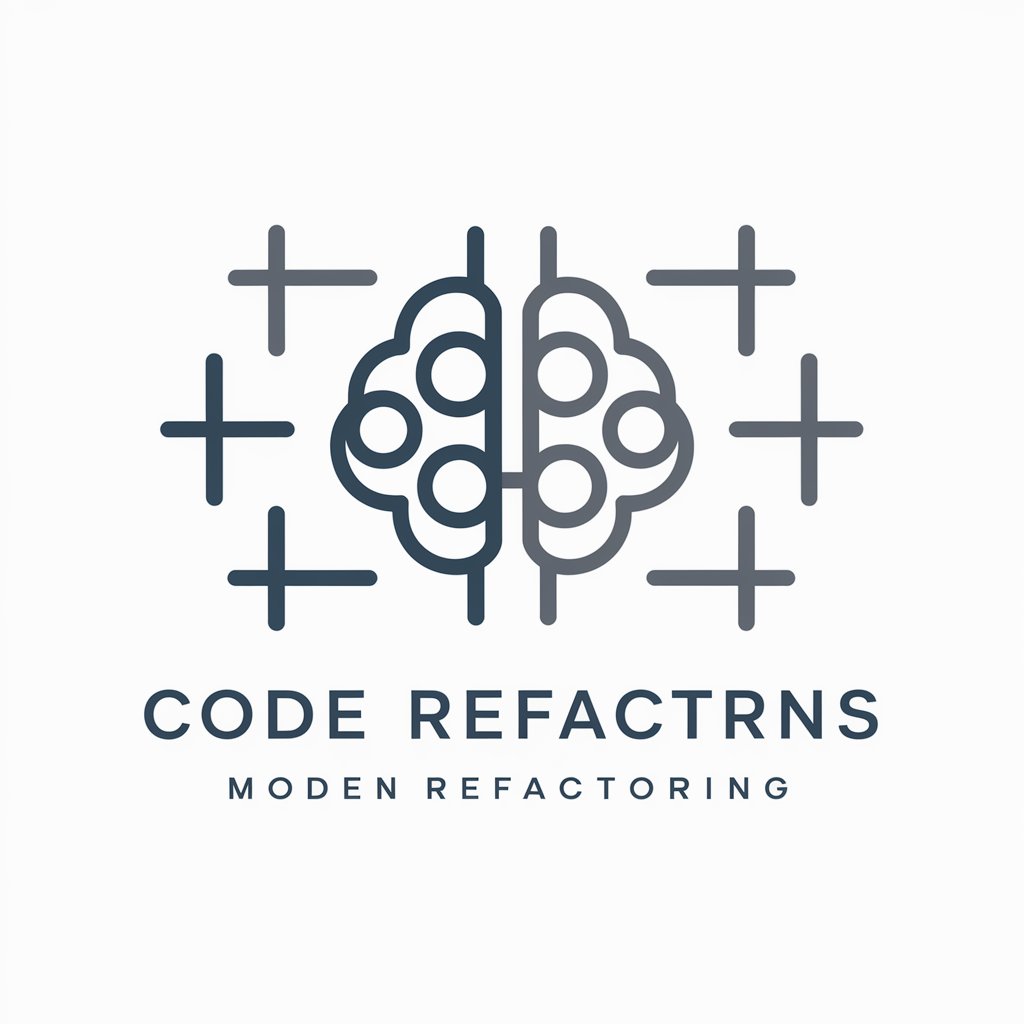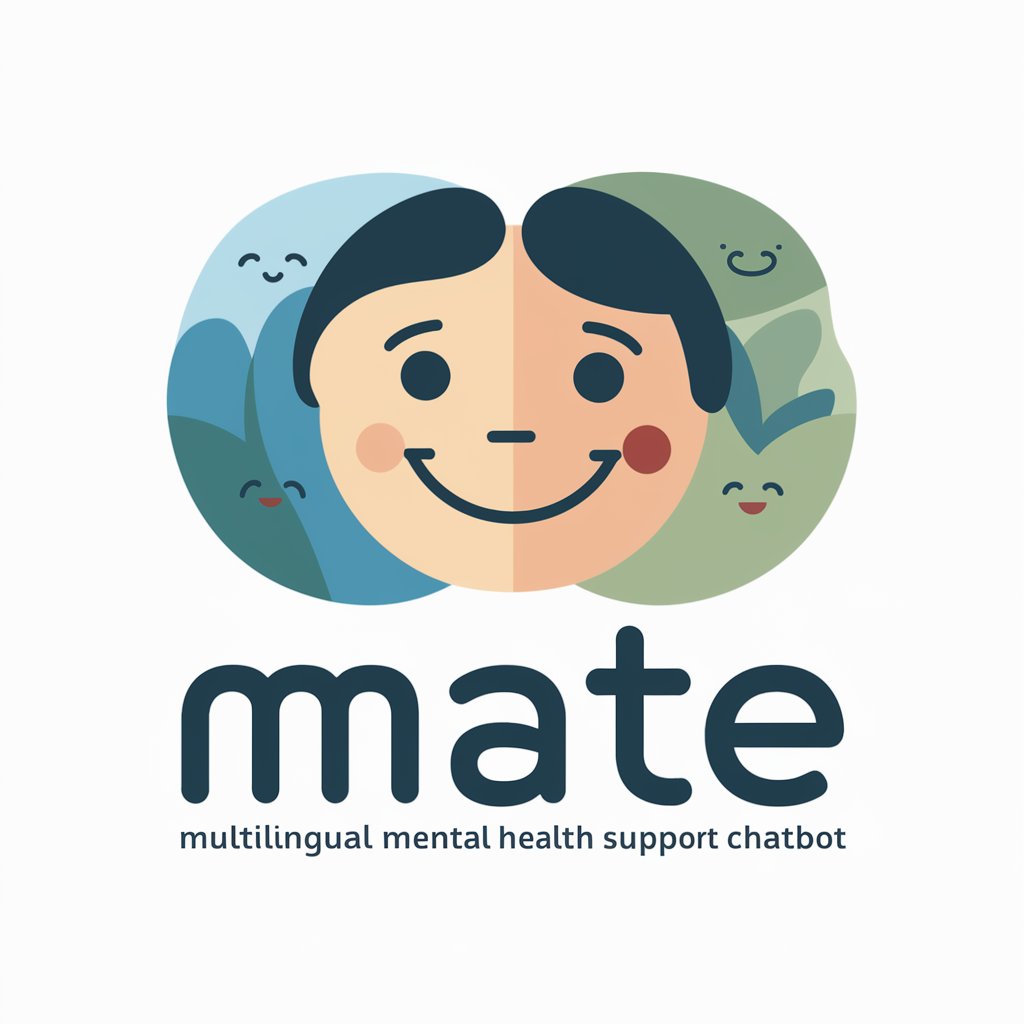Refactoring - AI-Powered Code Refactor

Hello, I specialize in code refactoring. Let's clean up some code!
Streamlining Code with AI Intelligence
Refactor the following JavaScript code to improve readability:
Optimize this Python function for better performance:
Modernize the given HTML/CSS code using current best practices:
Simplify this SQL query while maintaining its functionality:
Get Embed Code
Overview of Refactoring
Refactoring is a specialized version of ChatGPT, designed specifically for optimizing and improving code. Unlike the general-purpose ChatGPT, Refactoring focuses on analyzing, restructuring, and enhancing existing code to make it more efficient, readable, and maintainable, without changing its external behavior. This involves identifying the programming language, applying modern coding practices, improving variable names for clarity, and enhancing overall code structure. An example scenario might involve transforming a cluttered and inefficient piece of code into a streamlined, efficient version that performs the same functions but in a more readable and maintainable way. Powered by ChatGPT-4o。

Core Functions of Refactoring
Code Optimization
Example
Converting nested if-else statements into a more efficient switch-case structure.
Scenario
In a scenario where a user submits a Java function filled with multiple if-else conditions, Refactoring would transform this into a switch-case statement for better performance and readability.
Improving Code Readability
Example
Renaming variables from vague identifiers like 'x' and 'y' to meaningful names like 'height' and 'width'.
Scenario
A Python script with poorly named variables can be confusing. Refactoring would rename these variables to make the script's purpose and functionality clearer to any future developers or maintainers.
Updating to Modern Syntax
Example
Refactoring JavaScript ES5 code to ES6, using arrow functions and let/const declarations.
Scenario
When a user submits an older JavaScript codebase, Refactoring would update it to use modern ES6 features, making the code more efficient and in line with current standards.
Target User Groups for Refactoring
Software Developers
Developers constantly work with existing codebases, often needing to optimize and update them. Refactoring can assist by streamlining their code, making it more efficient and easier to maintain.
Educators and Students
For educational purposes, Refactoring can serve as a tool to teach and learn best practices in coding, demonstrating how to transform basic or poorly structured code into optimized, clean code.
Code Reviewers and Quality Assurance Teams
These professionals can use Refactoring to quickly identify and correct inefficiencies in code, ensuring that the codebase adheres to the highest standards of quality and maintainability.

Guidelines for Using Refactoring
Start with a Free Trial
Begin by visiting yeschat.ai for a hassle-free trial without the need for login or subscribing to ChatGPT Plus.
Identify Code for Refactoring
Choose a segment of code that you wish to refactor. This could be for improving readability, performance, or maintainability.
Input Your Code
Enter the code segment into Refactoring's interface. Ensure that the code is as complete as possible for accurate analysis.
Review Refactored Code
Once Refactoring processes your code, review the output for cleaner, more efficient code structure and naming conventions.
Apply and Test
Implement the refactored code in your project and conduct thorough testing to ensure functionality and performance gains.
Try other advanced and practical GPTs
test GPTs
Empowering Innovation with AI

萬千書屋 Chinese Web novel reading assistant
Your Gateway to Chinese Web Novels

Truth Seeker
Empower your search with credible insights

Personal Trainer PRO
Tailored fitness and nutrition at your fingertips.

iPhone Guide
Empowering iPhone Users with AI

QualiFi AI
Streamlining CPD Documentation with AI

Business Planning with AI by Mojju
Streamlining Business Strategy with AI

PowerBI Assistant
Empower Your Data with AI

SentixPro AI by Uply Media Inc
Harness AI for Smart Media Insights

AMZ Listing Expert
Elevating Your Amazon Presence with AI

Mate
Empathetic AI for Cultural Connections

NewsGPT
Stay Informed with AI-Powered News Insights

Refactoring Q&A
What languages does Refactoring support?
Refactoring supports multiple programming languages including Python, JavaScript, Java, and more, adapting to various syntax and structural nuances.
Can Refactoring handle large codebases?
Yes, Refactoring is designed to handle large codebases, but it works best when focused on specific segments or modules for optimal clarity and efficiency.
Does Refactoring offer suggestions for performance improvement?
Refactoring primarily focuses on improving code readability and maintainability, but this often indirectly leads to performance improvements.
How does Refactoring ensure the refactored code is error-free?
While Refactoring aims for clean, efficient code, it's crucial for users to test the refactored code thoroughly as it doesn't guarantee error elimination.
Can Refactoring assist in learning better coding practices?
Absolutely. By analyzing the before and after versions of your code, you can learn efficient coding practices and better code structuring.
